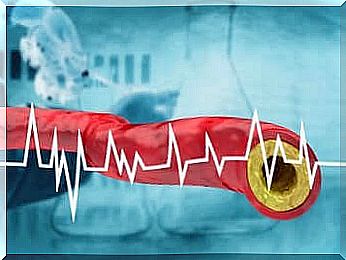Can Heart Disease Be Prevented?
Getting heart disease is something people dread. This is why many are interested in how it is possible to prevent heart disease. We will tell you about it in this article.

Preventing heart disease is possible to some extent. We can never eliminate the risk 100%, but there are steps that we can take that help reduce the possibility of severe cardiovascular disease.
The mortality associated with these pathologies has fallen significantly in recent times, although they are still the most frequent causes of death. The two most representative entities are cerebrovascular disease and ischemic heart disease.
What are cardiovascular diseases?
To know how to prevent heart disease, we must first identify them. Heart disease is a set of pathologies grouped together in the category of cardiovascular disease. The most frequent are:
- Cerebrovascular disease: The blood vessels in the brain are affected.
- Coronary heart disease: located in the vessels that supply blood to the muscle of the heart. It is also known as acute coronary syndrome.
- Thrombosis: this is the formation of clots in the blood vessels. If the clot stays in place, it is a thrombus; if it detaches and goes to another part of the circulatory system, it is an embolism.
- Arteriopathy: these are different clinical settings that affect the arteries of the limbs.
- Other heart disease: here we find, for example, those of rheumatic origin and congenital ones. The former are complications of rheumatic fever and the latter are present from birth.

Risk factors for heart disease
Understanding how to prevent heart disease requires knowing the risk factors that make us susceptible to it. Thus, for cardiovascular disease, the risk factors are classified into non-modifiable and modifiable.
Non-modifiable risk factors
Non-modifiable risk factors are those that we cannot do anything specific about. Age, for example, is an unchangeable factor, as is gender and membership of a certain ethnic group.
Scientifically, people over 40 have been shown to be at higher risk. Men are also more at risk than women. Another unchangeable risk factor is family inheritance. This is the history of heart disease of parents, grandparents and siblings.
Modifiable risk factors
We can affect these factors with changes in habits or drugs that help control. We will talk about this a little later in more detail. These are, for example, tobacco, diabetes and blood cholesterol.
How to prevent heart disease with medical measures?
Certain illnesses and physical conditions favor the development of heart disease. To prevent a major cardiovascular event, it is sometimes necessary to establish a strict control of these preliminary situations which can lead to mortality.
One of these situations is high blood pressure. It is a silent disease which, in the long term, decreases the blood flow to the heart by requiring more and more work of contraction and relaxation.
The end result can be an acute myocardial infarction. In fact, for people with hypertension, it is fundamental to maintain the values of the blood pressure figures at the level considered normal.
Diabetes mellitus is another disease that must be controlled to prevent heart disease. With diabetes, the amount of glucose that circulates in the blood becomes more important. This sustained increase damages the arteries with the final consequence of less blood supply to various organs.
Plasma serum cholesterol values require vigilance at least annually in healthy adult subjects. It must nevertheless be more frequent in people with a cardiovascular risk.
When cholesterol is high, it gets deposited in the arteries forming plaques. These reduce tissue oxygenation but can also rupture. The rupture of plaques is known as plaque accident and is at the base of the genesis of heart attacks.
For all these situations, a medical intervention which controls, treats and carries out an adequate follow-up is required. Sometimes with medication and other times with the application of behavior and habits.

Prevent heart disease with habit changes
There is a point where drugs have only a small role to play, and that point is the change of habits. While pharmacology is of great help in controlling cardiovascular disease, it is essential that the patient is committed to a major lifestyle change.
Scientific studies, over time, have shown that the following measures are able to significantly reduce cardiovascular risk:
- Quit smoking: It is well known that smoking causes cardiovascular and pulmonary mortality.
- Lose Weight: Obesity and being overweight are associated with high blood pressure, diabetes and increased cholesterol.
- Exercise: With the regularity of three sessions per week, spaced one day and about forty minutes each, we significantly reduce the possibility of heart disease.
- Healthy diet : the famous Mediterranean diet is a valid option for the control of hypertension, diabetes and cholesterol.
Preventing heart disease involves a change in daily habits. While it is true that some factors cannot be changed, such as age and gender, you should be aware that other factors can be changed. Stopping smoking, eating a healthy diet and exercising on a regular basis are key indications in the prevention of these pathologies.









